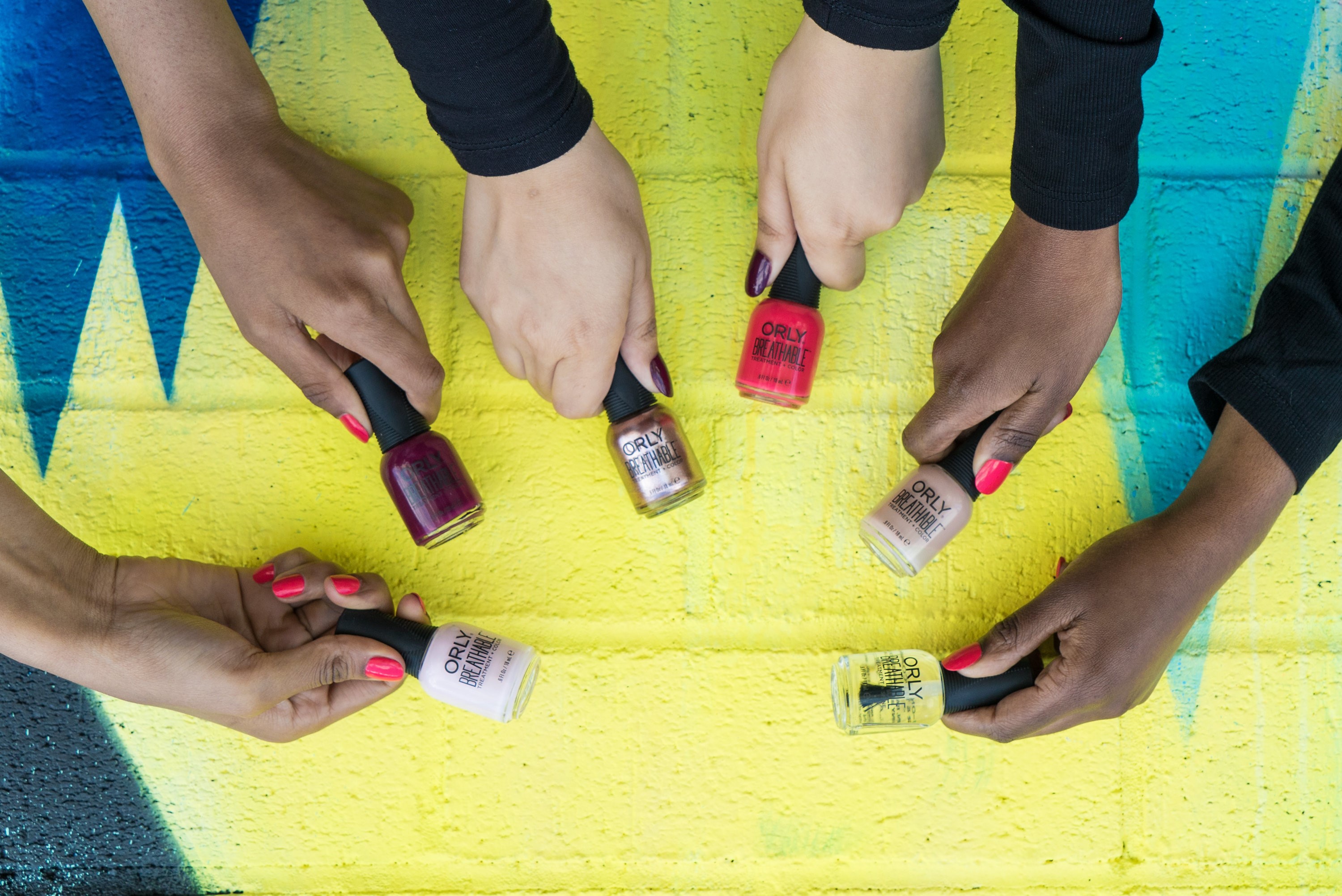Photo: Orly halal-certified nail polish. Photo courtesy Orly
The halal nail polish sector in North America is heating up with two companies going head to head for a share of the growing market.
Los Angeles-based Orly, an incumbent in the nail polish industry, launched this week a curated collection of its breathable nail polish products called ‘Halal Paint’ in collaboration with popular website Muslimgirl.com.
The timing of the launch of the collection is spot-on to capture the festive Ramadan and Eid season’s upsurge in commerce activities, especially in halal beauty and fashion products. Orly’s collection offers five colors.
Meanwhile, Maya Cosmetics, a smaller, Muslim-owned company based in Chicago, geared up for the festive upsurge with the launch of three new summer colors on top of its 24 ready colors just before Ramadan started.
Orly, known as a behemoth in the nail polish industry with 40 years behind its company history, started selling halal and breathable nail products with 19 colors last year at the Cosmoprof North American Show in Las Vegas.
This was just three months after Maya Cosmetics launched its halal nail polish products and gained traction in the U.S. halal cosmetics market even with a quieter, low-profile campaign.

Photo courtesy Maya Cosmetics
Both companies use 100 percent halal ingredients, are made in the USA and tout their products as a vegan and healthy alternative to traditional nail polishes.
In an email interview with Salaam Gateway, Maya Cosmetics co-founder Bilal Saeed said, “We have the opportunity to make this in numerous countries around the world but we want to stay in the U.S. knowing we could make a good quality product right here”.
The key halal factor of nail polishes rest squarely on the use of breathable technology.
Traditional nail polish, a long controversial beauty product for the halal consumer, is not permissible for use while in wudu and subsequent prayer since it does not allow water to permeate and reach the user’s nail plate. With breathable technology, water and oxygen can pass through to the nail plate easily.
CERTIFICATION
Well-aware of the Muslim cosmetic market’s anxiety when it comes to halal claims especially on beauty products, both companies worked very closely with Islamic centres.
Maya Cosmetics gained its halal certification from Darul Qasim Institute in Illinois and Orly’s collection is halal-certified by the Islamic Society of the Washington Area in Maryland.

Orly halal-certified nail polish launched in the second week of Ramadan 2017. Photo courtesy Orly
COMPETITION
Halal cosmetics have a huge potential in the market, especially since there are very few players in North America.
The global market size for Muslim spend in cosmetics is notable with $56 billion spent in 2015. This is projected to reach $81 billion by 2021.
It is however uncanny that both companies do not see each other as competition even when they are targeting the same segment.
When asked in an email interview who Orly is competing with in this sector, its Director of Communications John Galea said, “To date, I don’t know of any other companies who have a professional breathable product.”
Maya Cosmetic’s co-founder Javed Younis echoed the sentiment when told about Orly’s entrance in the market, “Quite frankly I didn't know and it's not a concern for us. We are working hard regardless of which competitor enters the market."

Maya Cosmetics nail polish. Photo courtesy Maya Cosmetics
GOING EAST
But Maya seems to be a step ahead with making sure its halal products have a targeted global reach. “We are [about to] finalize a deal with a large department store chain in Asia. We will announce the name once the deal is finalized,” Younis revealed to Salaam Gateway last month.
Maya's online store offers consumers four country/region options: U.S., European Union, Canada, and Pakistan.
Its intention to go east may prove lucrative as four Asian countries are among the top ten biggest Muslim consumer markets for cosmetics.
India leads with $4.7 billion in expenditure, followed by Indonesia at $3.3 billion, Malaysia at $2.8 billion, and Bangladesh at $2.5 billion.
Maya will meet with stiff competition from native Asian brands actively working on expanding their export markets.
Last month, Wardah Cosmetics, Indonesia's leading halal-certified cosmetics brand, announced its intention to start penetrating the global market. From this month, its products roll out throughout Malaysia in major retail chains Watsons and Giant Hypermarket.
Malaysia's halal cosmetics sector, valued at around 3 billion ringgit ($726 million), is also looking outward and is partnering with South Korea's ASEAN-Korea Centre to boost sales abroad.
South Korea itself exported around $94 million in cosmetics to Organisation of Islamic Cooperation (OIC) countries in 2014, with Southeast Asia accounting for around 64 percent of exports.
© SalaamGateway.com 2017 All Rights Reserved


Zuzanita Zakaria